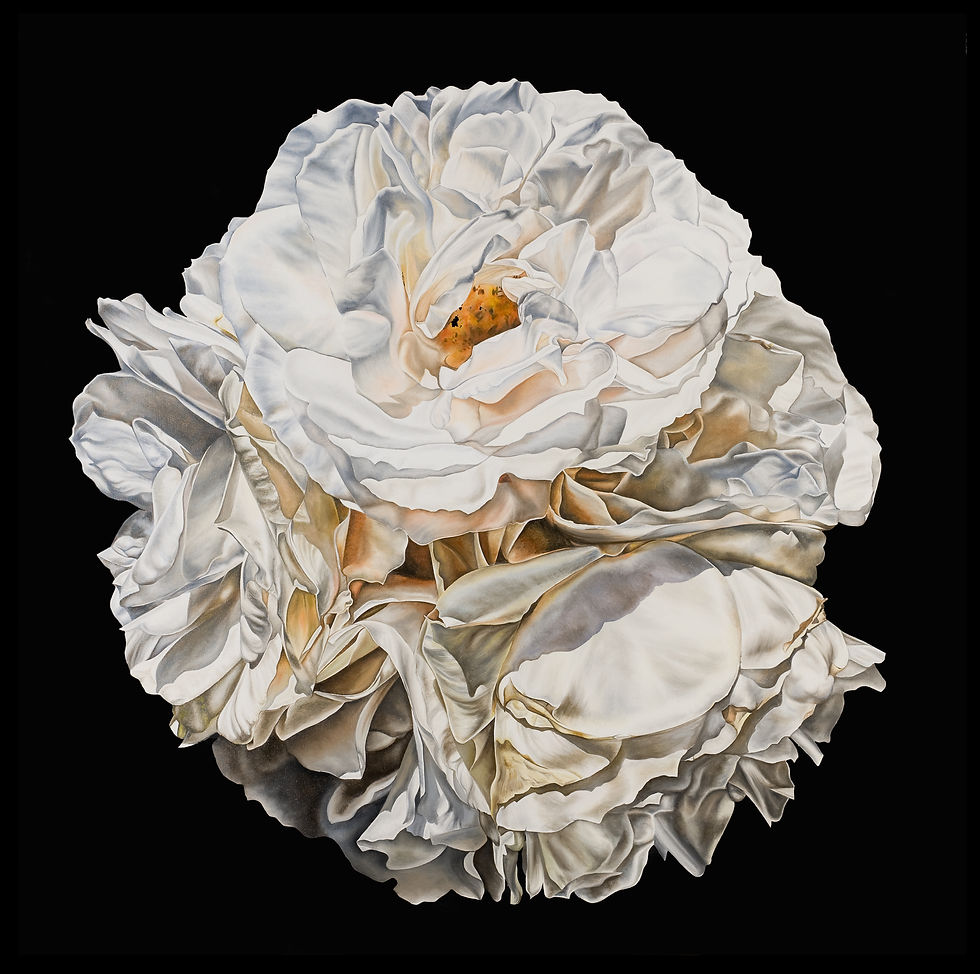Martin Vallis/ 'COLOURS'
- Sep 12, 2022
- 4 min read
The Man Studied Visual Communication at Medway College of Art and Design from 1976-79, moving to London in 1980. After working as a Photographic Assistant to Commercial Photographer Gary Bryan for 3 years, he set up his own studio in Chelsea in 1983, that specialised in high-quality still life photography, in the areas of Advertising, Design and Editorial. Martin also shot stills on TV and Cinema commercials, primarily with directors Howard Guard and Ridley Scott (Alien/Blade Runner/Gladiator). Some of Martin’s clients included, British Airways, BMW, Volkswagen and Selfridges. While working in the commercial world Martin’s style evolved, resulting in tightly- cropped, close-up work, mostly utilising Tungsten lighting, to enhance texture and detail. Two decades later Martin departed from commercial photography, concentrating on his own vision. Throughout his life and specifically his personal life, which has often been hell bent on self destruction, he’s been on a journey to find answers to the fundamental questions of ‘Who is he?’ What is his True Self or Identity? That journey has taken him via suicide attempts, psychiatric hospitals, detox hospital, rehab, treatment centres, and countless therapy groups and one to one sessions, trying to find the one true ‘Self’ but as he now knows there is no ‘Definitive Self’ he’s made up of many parts. Of course, many may already know this, but he doesn’t think that at any time in his life, he has been so conscious of this fact. He feels this is an important breakthrough for him. Martin feels as though he’s had a moment of clarity while undertaking Schema Therapy and through his involvement in Buddhism. He’s had many discussions around the idea of ’Self’ and the fact from a Buddhist perspective there is ‘No Self!' He says, he finally believes he understands this now. There is no one thing that specifically encapsulates Martin, he would need to give several definitions to find the whole picture of him, the same as the need to finish the jigsaw by putting the final piece in place to get the bigger picture. The Art Today Martin has rejected a lot of the values he developed while working in the commercial world, apart from the importance of composition. He’s gone from large format cameras to now shooting only on his iPhone, ‘I love the freedom, I don’t want to be bogged down with the technicalities of traditional photography’ he says. I also want to break down the stubbornness and snobbery that often hangs over traditional methods. I don't believe we think anything less of a painter if they use a rag or trowel to produce a painting, we either like it or not and surely that should be the same in photography. There's room for both. When he worked commercially if anyone had asked him what does ‘Quality’ mean in relation to the work, he would have said, the equipment and materials used but today answering the same question, he feels it’s the ‘idea’ and providing he can communicate the ‘idea,’ with whatever he’s using at the time, then it’s ‘job done.’ He even likes the pixel effect and compares it to ‘Grain’ that was popular back in the day with analogue photography. His current work reflects his journey so far, his thoughts and experiences, the good, the bad and the ugly. He says he’s had several comments regarding his work as being ‘Simple’ and ‘Anyone could have done that.’ However, in Martin’s experience, anyone don’t do that because they don’t see it in the first place and don’t understand the beauty of simplicity and as Leonardo da Vinci is quoted as saying, ‘Simplicity is the ultimate sophistication.’ And that’ll do for him. Martin adds he’s often attracted to subjects that may reflect his own struggles with interpersonal relationships and feelings of Alienation, Isolation, Disconnection, Emptiness and Loneliness. Matin likes the poem, The Ideal by James Fenton, which he says reflects something of his own life journey. This is where I came from. I passed this way. This should not be shameful Or hard to say. A self is a self. It is not a screen. A person should respect What he has been. This is my past Which I shall not discard. This is the ideal. This is hard.
‘’I’ve always been a fan of cars, particularly classic cars. I’m a man, it feels as though it comes with territory. Though I think it’s fair to say, it’s also creeping into the women’s domain. I’ve noticed a lot of women drivers in muscle, sports, and classic cars, which at one time might have been a predominately a male past time. Even though they are not very environmentally friendly they can conjure up a fantasy and an excitement like no other. Cars are often very much a reflection of the drivers Status or Ego and that’s very much how I see them. I’ve driven and owned many classics in my time and I’m aware of my own ego increasing as soon as I enter the vehicle, hopefully not too inflated;) It seems to matter not, what else may be going on in my personal life, I can be anyone I want when behind the wheel of a classic car. What I also like about cars is the designs and styling and of course the colours, some colours seem to work better than others, most noticeably red and blue. I rarely photograph the car in its entirety, I enjoy closing in on specific styling / shapes, which then allows me to create colourful abstracts which are sometimes enhanced after rainfall. I often use songs, poems, films or book titles, for image titles, they work well with the imagery.’’
















Comments